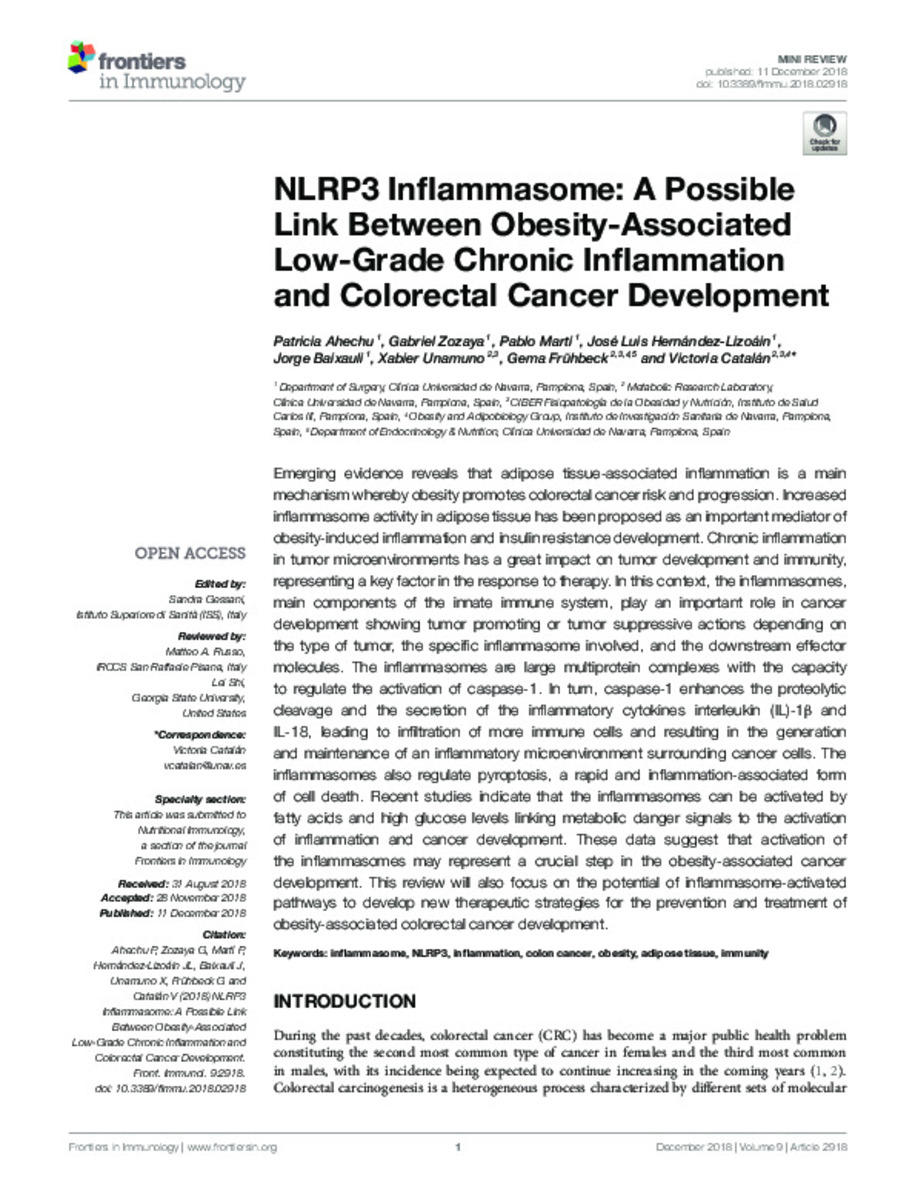NLRP3 inflammasome: a possible link between obesity-associated low-grade chronic inflammation and colorectal cancer development
Palabras clave :
Inflammasome
Nlrp3
Inflammation
Colon cancer
Obesity
Adipose tissue
Immunity
Fecha de publicación :
2018
Nota:
This is an open-access article distributed under the terms
of the Creative Commons Attribution License (CC BY). The use, distribution or
reproduction in other forums is permitted, provided the original author(s) and the
copyright owner(s) are credited and that the original publication in this journal
is cited, in accordance with accepted academic practice. No use, distribution or
reproduction is permitted which does not comply with these terms.
Cita:
Ahechu-Garayoa, P. (Patricia); Zozaya, G. (Gabriel); Marti, P. (Pablo); et al. "NLRP3 inflammasome: a possible link between obesity-associated low-grade chronic inflammation and colorectal cancer development". . 9, 2018, 2918
Aparece en las colecciones:
Estadísticas e impacto
0 citas en

Los ítems de Dadun están protegidos por copyright, con todos los derechos reservados, a menos que se indique lo contrario.







